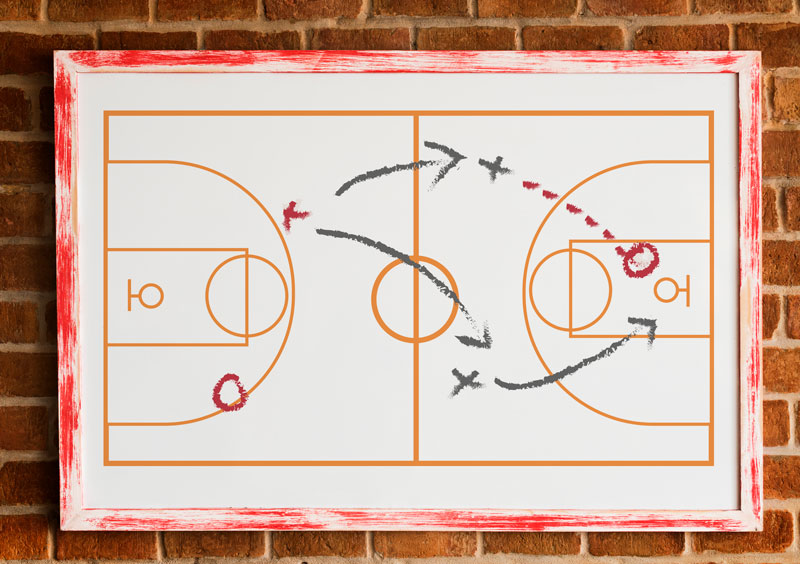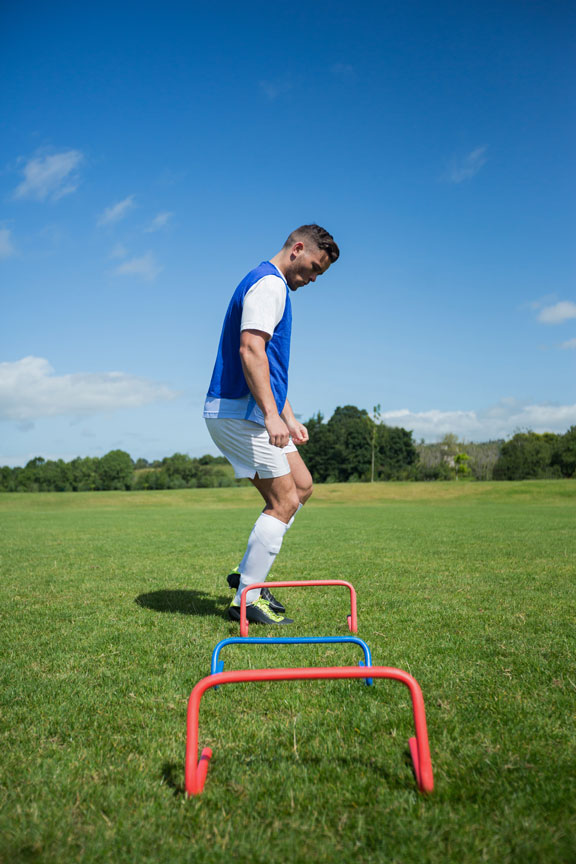Alongside physical, technical, tactical and nutritional training, mental preparation plays an important role in the training of top-performance athletes, as it is the element that makes the difference between the top performers.
Pillars of sports training

Four o’clock in the morning is the time of day when more than half of the planet’s population is asleep, a considerable percentage is working to ensure the continuity of important activities, and a minority wakes up to start their daily programme.
Breakfast, preparation for training, actual training, recovery and the day’s secondary activities start before sunrise, without exception, for those who pursue performance in the arenas.
David Popovici, the well-known Romanian teenage swimmer, follows the same routine, with one small difference: after breakfast at 4am, he sleeps an hour before his first training session of the day, which is scheduled for 5.45am. This ensures he enters the pool energised, ready to focus on the training programme organised by his coach.
There are few social activities where competition plays such an important role in measuring success, and sport tops the list. Practitioners of any sport put a lot of effort and energy into getting better through training, with the aim of surpassing their competitors in individual and team competitions.
Preparation for sports competitions is based on several important pillars: physical, technical, tactical, nutritional and mental. I have put the mental last in this list on the principle that “the last shall be first”
Simply playing a game on the court next door, be it football, basketball, handball, Sport is not an exclusively physical activity, contrary to what most people believe, which often equates physical activity with sport. volleyball or tennis, does not qualify players for the status of sportsperson.
Planned training and competition are the differentiating factors between recreational play, for exercise, and sporting activity.

The physical aspect of sports training aims to prepare the performer to be able to cope energetically during the competition with his opponents, ensuring the functionality of the other pillars. Whatever the sport – football, basketball, cricket, chess or shooting – the athlete needs to be in outstanding physical condition to cope with intense and long-lasting competition.
Along with physical preparation, nutrition ensures optimal nutrition to support an active, high-stress, high-stress lifestyle.
Game-specific technique is honed over thousands of hours of repetitive training to build the skill set that will help the fighter in the matches in which he competes.
Agassi rehearsed a certain type of stroke thousands of times every month to execute it perfectly under stress during matches in tennis tournaments. Hagi used to stay on the training ground for many hours after the training sessions with the team to practise free kicks against the wall, so that his achievements during top-level matches came as a surprise only to those who did not know how much effort was behind a goal from the edge of the 16-metre box.
After excellent physical training and a rich technical background, depending on the competition and the opponents, tactical preparation is carried out, in which the competition strategy is established and the game plan is drawn up.
All these pillars will function optimally, in terms of supporting performance sports activity, if at their center is the pillar of resistance: the mental.
The intangibility of this element in the sports training cocktail makes it, in the view of many top performers, less important than increasing muscle mass, endurance or technical elements.

Mental Training

Muscles can help us go further, overcome more seemingly impossible obstacles and limits. They can help us, but they won’t be put into action without the decision of the Mind. The Brain and the whole subordinate psychological system, become responsible for enhancing or inhibiting the physical potential of the individual.
Sport is not about examining knowledge or testing the level of acquisition of information. A sporting contest is a battle between two or more individuals, who come together in a well-defined space to achieve the same objective.
So we have a battle in which the strongest will triumph, but not necessarily the physically strongest, but the one who will reach his or her maximum potential during the contest.
This is where the Mental valences come in, those that enhance the athlete’s fighting capacity, namely confidence, concentration, motivation, positive thinking, goal setting and visualisation.

How can you get started, take the first step into the fight, if you don’t feel you can fight? When the brain is flooded with mistrust, the commands that the muscles should be receiving suddenly become paralysed, and all the physical build-up from training becomes inactive.
Sports competition often takes place in an environment other than the incubator that is the training space, and novelty factors such as the crowd or the stress of competition distract the performer from what they should be achieving in the arena.
The ability to concentrate is another differentiator between athletes. Confidence and focus set athletes on the road to success, but motivation – whether it is inner or outer motivation – is the fuel that drives them to the finish line. The conscious “why” provides all the arguments the self needs to persuade itself to make progress in the desired direction.
On this road to success, the athlete often encounters psychological pitfalls that challenge his or her entire training and have the power to divert him or her from the path. This is where the self-regulation known as Positive Thinking comes into play, that invisible selection mechanism which allows us to place more value on the constructive aspects around us at the expense of the destructive. It’s about seeing “the glass half full”, and pragmatically speaking, it’s what champions do to differentiate themselves from the rest of the competition.
At the end of the road are the goals towards which the athlete is moving with all his energy. Just imagine how hard it is to set off on a journey, to a place you have never been before, on a road that is totally unknown to you. This adventure will cause you a lot of anxiety and affect the quality of your experience. So does a competitor in a sporting event, when they set themselves goals to achieve and make the effort to become aware of them and visualise success.

Mental training and building the psychological context for performance are actions carried out with specialised help and are supported by an appropriate diet containing the necessary supplements for intense mental activity.Arginine, magnesium and vitamin B6, in optimal daily doses, help to recover the energy reserves needed for training and competition.